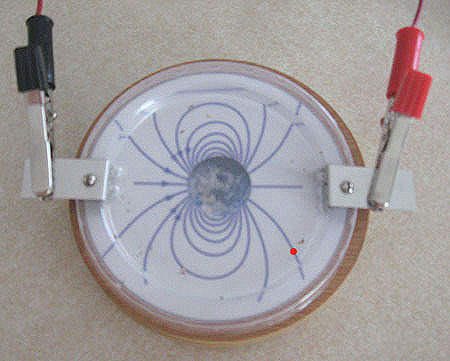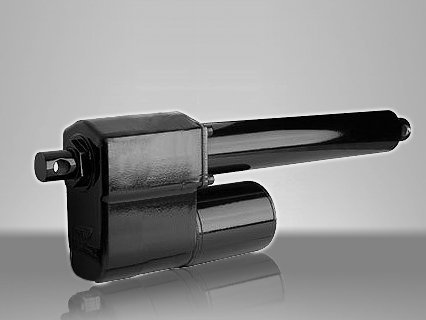Metal detector technology has been used for a number of decades to locate various metallic artifacts and precious metallic ores. An uncommon, but accurate metal detector is the Pulse Induction Metal Detector. It uses Pulse Induction Technology to find metals.
What is Pulse Induction Technology?
In Pulse Induction technology, a coil is used as a transmitter and receiver. Pulse Induction metal detectors are likely to have a single coil, but there are others that have additional coils. Powerful pulses of current are sent through the coil. The pulses create magnetic fields that are used to reverse the polarity and cause electrical bursts or spikes. These only last a few microseconds and are constantly repeated. 
Pulse Induction technology creates opposite magnetic fields that can be detected through the pulse in order to locate metals. When the pulse runs through a metal, it lasts a little longer than it would without the metal there. A monitor that is used within a sampling circuit detects the resulting pulse. The pulse’s expected length is calculated and compared to the actual length. When there is an anomaly, the circuit picks up and transmits the signals to an integrator, which is designed to read the signals and convert them into a direct current that an audio circuit can read.
The audio circuit monitors the anomalies and generates chirps that vary in tone and pitch. The tone that is generated indicates the type of metal that the Pulse Induction Metal Detector detects. Although Pulse Induction, by nature, does not always accurately determine which metals are which, very different metals are distinguishable.
Benefits of Pulse Induction Metal Detectors
A Pulse Induction Metal Detector has some benefits that others do not. It is generally easy to use and has a high metal locating rate. It is ideal for many uses, especially to find land mines and other dangerous things in military operations.
Conductive Materials in the Environment – Conductive materials such as salts, water, and minerals tend to affect how other types of metal detectors work. They may actually benefit the Pulse Induction metal detector’s penetrating power, which helps the detector to locate the target.
Environments – Environments with a large amount of conductive materials are no problem for Pulse Induction Metal Detectors. They are easy to use underwater and can explore all types of environments.
Distance in Ground – Since the environment and mineralization do not affect pulse induction, metal detection can be done from a greater distance. Metals can be detected through thick mineral deposits and even in black sand, which often throws off other types of metal detectors as its high iron content makes it magnetic.
Drawbacks of Pulse Induction Metal Detectors
Pulse Induction metal detectors are not perfect of course, but the flaws are quite insignificant and can generally be overlooked. The drawbacks are usually related to convenience, not the device’s functionality.
Discrimination of Metal Types – Since Pulse Induction detects metal via the length of time it takes for the anomalies’ pulses to decay, it is usually only used to detect the metal, rather than determine the type of metal.
Multiple Coil Array Setups – Some Pulse Induction detectors are difficult to carry because they have an array of multiple coils. There are generally 2-5 coils that are used in an array that make the detector much heavier.
Pulse Induction Metal Detector Accessories
Pulse induction metal detectors have many accessories that can improve their function and make them simpler to use. These accessories include:
Corrosion Resistant Parts – Corrosion resistant parts are important. Pulse Induction metal detector parts can easily become corroded when they come in contact with rust, water, grit, etc. over time. Highly corroded parts cause the detector to malfunction.
Long Lasting Batteries – Batteries are necessary for any metal detector, but Pulse Induction varieties use much more energy due to the power needed to create pulses. Using high quality, long lasting batteries is a great way to extend the amount of time out in the field. Having extra batteries available also make it possible to switch out whenever necessary. Pulse Induction metal detectors generally use household batteries, while others have specialized high capacity batteries made especially for them.
High Quality Headphones – High quality headphones not only allow the generated sound to be isolated, but it amplifies the sound that the device emits without consuming more power. There are several types of headphones that are specifically designed to be used with metal detectors. Although there are many high quality headphones, the ones that are designed to be used with the Pulse Induction Metal Detector give the best results.
Varying Rod Lengths – The rod length that should be used depends on the task. A short rod is good for underwater scanning, while a long rod is ideal for a variety of options such as walking or scanning on uneven surfaces such as a mountainside.
Water Probes – Water probes are used to locate metal in or around water sources without having to completely submerge it. This is very useful when the water is murky or difficult to get into or around.
Pinpointer – The pinpointer is a tool that is much like a water probe. It helps the detector to find the metal’s specific location.
Electro Magnetic Disturbance and Pulse Induction
One of the most important phenomena on earth is its magnetism. The wild burst of energy that causes the magnetic fields to change can disturb how the Pulse Induction Metal Detector works.
While it is impossible to completely remove the earth’s magnetism, it is possible to reduce how much it affects the metal detector. By making adjustments to the metal detector itself, the user can easily make it possible to only detect what is between its sensors and coils.




Follow Us!